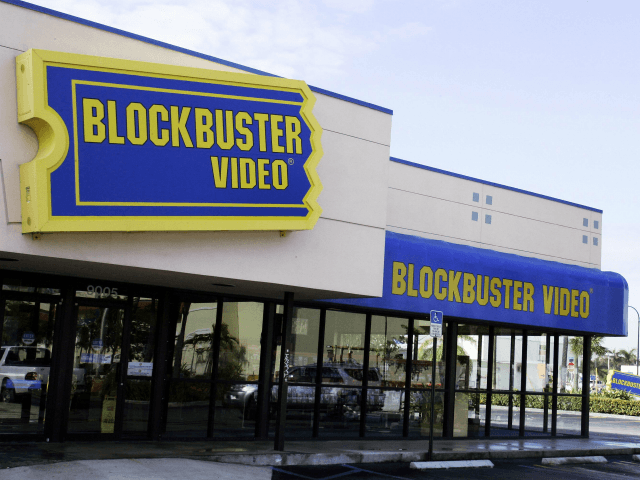Culture secretary Nicky Morgan has warned that the BBC could go the way of Blockbuster — becoming a total irrelevancy and going bust — unless it evolves.
Baroness Morgan made the remarks as her department launches a consultation on decriminalising payment of the licence fee which funds the British Broadcasting Corporation, saying “accountability and value for money must be at the heart of how the BBC is funded”.
The TV tax is compulsory for anyone who watches live or records live television or uses BBC iPlayer. Payment is mandatory even if you watch live programming on a computer, phone, or other device and even if you watch live television from other providers but do not watch BBC programming at all.
Last year on the campaign trail, Prime Minister Boris Johnson had questioned whether it was right to continuing forcing consumers to sustain the BBC, saying: “How long can you justify a system whereby everybody who has a TV has to pay to fund a particular set of channels?”
In the consultation, Britons will be asked whether criminal sanctions should continue to be imposed for non-payment, or whether another method should be used.
The culture secretary had written in the Daily Mail: “Twenty years ago Blockbuster, the then heavyweight of video rentals, turned down a £38m merger offer from Netflix.
“Today Netflix is worth £50bn, 1,300 times its offer to Blockbuster — which has gone from 3,000 stores to a museum in Oregon, for people who want to remember what video cassettes look like.”
Tony Hall, the head of the BBC, is stepping down from his job: the latest hugely satisfying and thoroughly deserved victim of 'Get woke, go broke'… https://t.co/OtsCt1o2xC
— Breitbart London (@BreitbartLondon) January 20, 2020
“We don’t want a beacon of British values and world-class entertainment ending up like Blockbuster,” Baroness Morgan of Cotes added.
The broadcaster said that stopping the criminalisation of paying the licence could cost them £200 million a year. However, the government says that doing so would free up Britain’s criminal courts and protect vulnerable, poorer members of society. Failure to pay the television licence can result in a £1,000 fine, court attendance, and even imprisonment.
In 2018, 121,000 people were convicted of television licence evasion and sentenced, with five in England and Wales going to prison.
That threat of going to prison is also going to be dropped, with Baroness Morgan set to say at the Policy Exchange think tank: “Many people consider it wrong that you can be imprisoned for not paying for your TV licence and that its enforcement punishes the vulnerable.”
Payment of the BBC’s TV tax is policed by enforcement officers, who employ “detection vans” which can “detect the use of TV receiving equipment at specifically targeted addresses within minutes”. If you notify TV Licencing that you no longer need a licence, the body may send “enforcement officers” to your home to “confirm” whether you still need to pay the tax.
Controversy surrounds the BBC’s plans to charge the country’s 3.7 million over-75s, with exemptions for those on pension credit, the tax to watch television. MPs expressed concern last year that so-called “outreach” officers visiting the elderly to remind them that they have to pay the £157.50 a year could be frightening. The BBC had agreed to take on the responsibility to pay the fees from the government in 2015, but later claimed that it could not afford to do so.
The Department for Digital Culture, Media and Sport said that any changes to punishment for not paying the TV tax would not come into effect until April 2022.
BBC a ‘Secular Church’ That ‘Preaches’ on Climate Change, Against Brexit: Guest Editor https://t.co/DM3VdFl8ld
— Breitbart London (@BreitbartLondon) December 29, 2019
The licence fee is currently £154.50 a year but is set to go up by £3 in April to £157.50. By comparison, Amazon Prime, which includes a streaming service, costs £79 a year; a single-user Netflix costs £6.99 a month, or £83.88 a year; and NOW TV’s basic Entertainment Pass costs £7.99 a month, or £95.88 annually, meaning that a consumer could almost cover the cost of two subscription services for what they are forced to pay per year to support the BBC.
The current licence is protected by Royal Charter until 2027 and provides the broadcaster with £3.7 billion a year in revenue. Despite the rising cost of the TV tax, the BBC announced last week that it would be axing 450 jobs in its news services in an attempt to save £80 million by 2022.
This is not the first time that the BBC has been told to evolve or die. Viewing figured revealed last year that fewer than half (49 per cent) of Britons aged 16 to 24 watch BBC programmes even a minimum of once a week. Broadcasting watchdog Ofcom warned the BBC in October warned that “public support for the licence fee could become eroded” in future.
Public support in the licence fee is already “eroded”, however, with a YouGov poll from December showing that half of Britons want the TV tax scrapped and the BBC to earn its own money, rather than simply be entitled to it.
BBC Accuses Boris Govt of ‘Trumpian’ Tactics Amidst Impartiality Row https://t.co/PYLZWxa7Ya
— Breitbart London (@BreitbartLondon) December 23, 2019

COMMENTS
Please let us know if you're having issues with commenting.